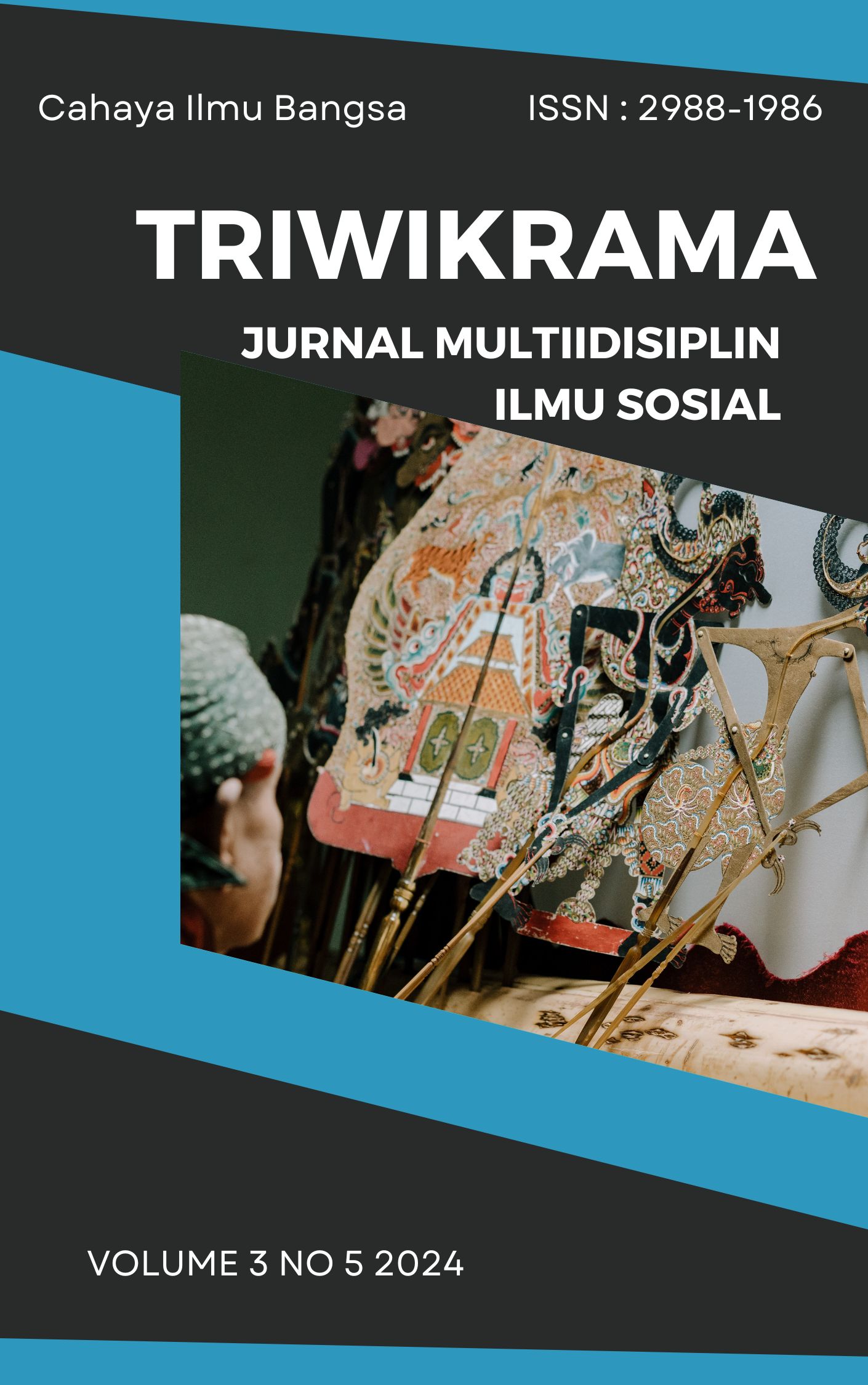BLACK SEA GRAIN INITIATIVE SEBAGAI INSTRUMEN STABILITAS GLOBAL: KETAHANAN PANGAN DAN GEOPOLITIK PASCA INVASI RUSIA
DOI:
https://doi.org/10.9963/3stedn13Keywords:
diplomasi pangan, Black Sea Grain Initiative, ketahanan pangan global, konflik Rusia-Ukraina, geopolitik pangan, food diplomacy, Black Sea Grain Initiative, global food security, Russia-Ukraine conflict, food geopoliticsAbstract
Krisis pangan global yang dipicu oleh invasi Rusia ke Ukraina menegaskan pentingnya diplomasi multilateral dalam menjaga stabilitas pasokan pangan dunia. Artikel ini mengkaji peran strategis Black Sea Grain Initiative (BSGI) sebagai respons kolektif terhadap disrupsi logistik dan ketidakpastian pasar pangan. Penelitian ini bertujuan mengevaluasi kontribusi BSGI terhadap ketahanan pangan global serta tantangan geopolitik yang memengaruhi efektivitas dan keberlanjutannya. Penelitian ini menggunakan pendekatan kualitatif dengan metode studi kasus, memanfaatkan data sekunder dari dokumen resmi, laporan internasional, dan publikasi akademik. Temuan menunjukkan bahwa BSGI berhasil menstabilkan harga pangan global dalam jangka pendek dan mendukung distribusi biji-bijian ke negara berkembang. Namun, efektivitasnya terbatas oleh ketergantungan pada jalur logistik tunggal dan kerentanan terhadap dinamika politik. Studi ini menekankan perlunya reformasi tata kelola pangan global melalui diversifikasi rute distribusi dan kerangka hukum internasional yang lebih tangguh. Implikasi hasil ini memperkuat pentingnya pendekatan keamanan non-tradisional dan kerja sama internasional dalam mencegah krisis pangan di masa depan.
The global food crisis triggered by Russia’s invasion of Ukraine underscores the critical role of multilateral diplomacy in ensuring food supply stability. This article examines the strategic function of the Black Sea Grain Initiative (BSGI) as a collective response to logistical disruptions and food market uncertainty. The primary objective is to assess BSGI’s contribution to global food security and analyze the geopolitical challenges affecting its effectiveness and continuity. A qualitative case study approach was employed, drawing on secondary data from official documents, international reports, and academic publications.
Findings reveal that BSGI contributed to short-term food price stabilization and enabled grain distribution to developing countries. However, its impact is constrained by reliance on a narrow logistics corridor and exposure to political instability. The study highlights the need for reforming global food governance through diversified supply routes and stronger international legal frameworks. The implications reinforce the importance of non-traditional security perspectives and international cooperation in preventing future food crises.
References
Center for Strategic and International Studies. (2022, June 2). Why is Russia blocking Ukraine’s
food exports? https://www.csis.org/analysis/why-russia-blocking-ukraines-food-
exports
Center for Strategic and International Studies. (2024, February 15). Russia–Ukraine war and
global food security. CSIS Global Food Security Program.
https://www.csis.org/analysis/russia-ukraine-war-and-global-food-security
Chauhan, R. (2024). The impact of armed conflicts on global food supply chains. International
Journal of Future Management Research, 5(5), 112–124.
https://www.ijfmr.com/papers/2024/5/27394.pdf
Cyfirma. (2023). Black Sea grain deal: A geopolitical ETLM perspective. Cyfirma Research.
https://www.cyfirma.com/research/black-sea-grain-deal-a-geopolitical-etlm-
perspective/
Food and Agriculture Organization of the United Nations. (2022a). The importance of Ukraine
and the Russian Federation for global agricultural markets and the risks associated with the
war in Ukraine: Information Note, 10 June 2022 Update. Food and Agriculture
Organization of the United Nations.
https://openknowledge.fao.org/items/6894d813-d9fe-4348-939c-5b73c2539fd7
Food and Agriculture Organization of the United Nations. (2022b). The Black Sea is a strategic
hub in the global grain trade. FAO Knowledge Repository.
https://openknowledge.fao.org/items/6894d813-d9fe-4348-939c-5b73c2539fd7
Food and Agriculture Organization of the United Nations. (2022c). FAO food price index.
https://www.fao.org/worldfoodsituation/foodpricesindex/en/
Kacperska, E. M., Łukasiewicz, K., Skrzypczyk, M., & Stefańczyk, J. (2025). Price volatility in
the European wheat and corn market in the Black Sea Agreement context. Agriculture, 15(1),
91. https://doi.org/10.3390/agriculture15010091
Nguyen, T. T., Timilsina, R. R., Sonobe, T., & Rahut, D. B. (2023). Interstate war and food
security: Implications from Russia’s invasion of Ukraine. Frontiers in Sustainable Food
Systems, 7, Article 1080696. https://doi.org/10.3389/fsufs.2023.1080696
Pusat Strategis Kajian Pangan, Kementerian Pertanian Republik Indonesia. (2024). Mewaspadai
dampak keluarnya Rusia dari kesepakatan Black Sea Grain Initiative terhadap ketahanan
pangan global dan domestik. http://psekp.setjen.pertanian.go.id
Pusat Strategis Kajian Pangan. (2022). Antisipasi dampak krisis Rusia-Ukraina terhadap sektor
pertanian Indonesia (PB-03/2022). Kementerian Pertanian Republik Indonesia.
http://psekp.setjen.pertanian.go.id
Sadłowski, A., & Zając, A. (2024). Export of Ukrainian agricultural products through Poland – route
restrictions. Agricultural and Resource Economics, 10(4), 29–46.
https://doi.org/10.51599/are.2024.10.04.02
Saraswati, P. (2025). Trends and challenges in qualitative research: A comprehensive review.
Mathews Journal of Nursing and Health Care, 7(1), 57.
https://doi.org/10.30654/MJNH.100057
United Nations Conference on Trade and Development. (2023). A trade hope: The impact of the
Black Sea Grain Initiative. https://unctad.org/a-trade-hope
United Nations. (2023). The Black Sea Grain Initiative: What was achieved?
https://www.un.org/en/black-sea-grain-initiative/achievements
Downloads
Published
Issue
Section
License

This work is licensed under a Creative Commons Attribution-NonCommercial-ShareAlike 4.0 International License.










